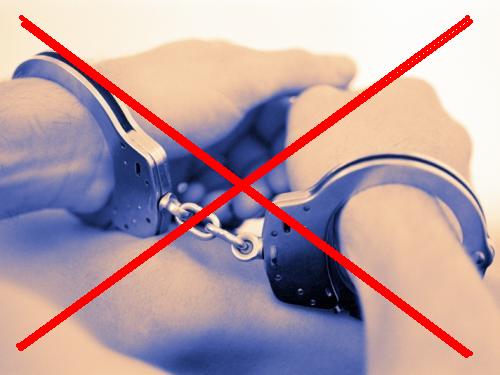eDiscovery Daily Blog
Case Law: Spoliate Evidence and Go to Jail–OR NOT?!?

As previously referenced in eDiscovery Daily, defendant Mark Pappas, President of Creative Pipe, Inc., was ordered by Judge Paul W. Grimm to “be imprisoned for a period not to exceed two years, unless and until he pays to Plaintiff the attorney’s fees and costs that will be awarded to Plaintiff as the prevailing party pursuant to Fed. R. Civ. P. 37(b)(2)(C).”.
Judge Grimm found that “Defendants…deleted, destroyed, and otherwise failed to preserve evidence; and repeatedly misrepresented the completeness of their discovery production to opposing counsel and the Court.” As a result, he ordered “that Pappas’s pervasive and willful violation of serial Court orders to preserve and produce ESI evidence be treated as contempt of court”, resulting in the severe sanction.
Pursuant to Magistrate Judge Grimm’s September 9 decision and order and the relevant local rule, however, defendants were allowed to object to the same order. In that briefing, Mr. Pappas’ counsel argued that “[t]his Court’s power to impose a coercive civil contempt sanction … is limited by a party’s ability to comply with the order,” and further that, “[i]f the fee awarded is so large that Mr. Pappas is unable to pay it, the ordered confinement would not be coercive, but punitive, and could not be imposed without criminal due process protections.” Defendants thus requested that Magistrate Judge Grimm’s order be modified such that, following the quantification of the fee award, Mr. Pappas be permitted to demonstrate his inability to pay it, and further to provide that Mr. Pappas would only be confined if he is able to pay but refuses to do so. The District Court agreed with Mr. Pappas’ counsel and, on November 1, 2010, issued a Memorandum and Order holding as follows: “[T]he Court does not find it appropriate to Order Defendant Pappas incarcerated for a future possible failure to comply with his obligation to make payment of an amount to be determined in the course of further proceedings. Certainly, if Defendant Pappas should fail to comply with a specific payment order, the Court may issue an order requiring him to show cause why he should not be held in civil contempt for failure to comply with that payment order. Also, under appropriate circumstances, criminal contempt proceedings might be considered.”
That same day, the Court further ordered that defendants must pay plaintiff the amount of $337,796.37 by November 5 and, if such payment is not made, defendants must appear on November 8 for a civil contempt hearing. Moreover, if defendants failed to pay and Mr. Pappas failed to appear at the civil contempt hearing, “a warrant may be issued for his arrest so that he shall be brought before the Court as soon as may be practicable.” From the docket it appears that ultimately the parties resolved the issue between them without the need for a further contempt proceeding.
So, what do you think? What will happen next? Please share any comments you might have (including examples of other cases where sanctions included jail time) or if you’d like to know more about a particular topic.
Case Summary Source: E-Discovery Law Alert, by Gibbons P.C.
Disclaimer: The views represented herein are exclusively the views of the author, and do not necessarily represent the views held by CloudNine Discovery. eDiscoveryDaily is made available by CloudNine Discovery solely for educational purposes to provide general information about general eDiscovery principles and not to provide specific legal advice applicable to any particular circumstance. eDiscoveryDaily should not be used as a substitute for competent legal advice from a lawyer you have retained and who has agreed to represent you.
